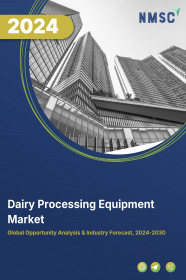
Latin America Automated Truck/Trailer Loading System Market by Type (Ground-Based and Overhead), by Automation (Semi-Automatic and Fully Automatic), by Load Type (Fluid Loads, Containers, Totes, Pallets, and Wheeled Carts/Cages), by Truck/Trailer Type (Non-Modified and Modified) – Global Opportunity Analysis and Industry Forecast, 2024–2030
Industry: Construction & Manufacturing | Publish Date: 03-May-2025 | No of Pages: 189 | No. of Tables: 135 | No. of Figures: 100 | Format: PDF | Report Code : CM1716
Market Definition
The Latin America ATLS Market size was valued at USD 18.4 million in 2023, and is predicted to reach USD 28.0 million by 2030, at a CAGR of 6.2 % from 2024 to 2030.
An Automated Truck/Trailer Loading System (ATLS) represents a technology-driven solution for material handling, aimed at automating tasks associated with truck and trailer loading and unloading. Typically, ATLS consists of a conveyor system, loading dock, and control system. The conveyor system transports pallets or containers to the loading dock, where the control system manages the loading or unloading process. The principal goal of ATLS is to streamline and optimize logistics and supply chain operations by automating manual tasks involved in handling goods during loading and unloading, thereby improving efficiency, safety, and productivity within warehouse and distribution center environments.
ATLS utilizes a blend of mechanical, conveyor, sensor, and control technologies to efficiently and accurately handle various types of cargo, including individual boxes, containers, pallets, and bulk goods. These systems seamlessly integrate into loading docks, warehouses, and distribution centers, significantly contributing to operational efficiency gains, increased throughput, and enhanced safety by reducing the reliance on manual labour in the loading process. Moreover, these solutions can be customized to meet the specific needs of different industries, cargo types, and existing infrastructure, ensuring adaptability and efficiency enhancements across diverse logistical scenarios.
The Rising Labour Costs Propel the ATLS Market Growth
The increase in labour costs fuels the adoption of ATLS in various industries in the region. Companies are searching for cost-effective and efficient solutions as labour expenses rise, especially in the labour-intensive sectors such as manufacturing and logistics. Finding and retaining a workforce capable of tasks such as loading and unloading trucks is getting tougher.
In response, ATLS has become a strong solution as these systems reduce the need for human labour and deliver consistent and reliable performance. They work continuously without breaks, improving efficiency and cost savings. This makes them an attractive choice for industries looking to improve operations while managing high labour expenses.
The Rising Acceptance of Automation in Warehouses Boosts the ATLS Market
The widespread incorporation of automated solutions in warehouses and the logistics sector is driving the growth and advancement of the ATLS industry in the Latin America.
This adoption aligns seamlessly with ATLS technology, as businesses strive for comprehensive automation in their logistics and supply chain activities. Integrating ATLS with existing automation setups such as conveyor systems and robotic material handling significantly enhances operational efficiency.
High Initial Costs Restraint the Market Growth
Numerous organizations encounter notable obstacles when contemplating ATLS adoption, primarily due to the substantial upfront expenses involved.
This factor serves as a restraint on market growth. The initial costs entail acquiring technology, making infrastructure investments, addressing customization and integration expenses, facilitating workforce training, engaging consulting services, and evaluating scalability options.
The Integration of Advanced Technologies Creates Opportunities for the Market
Incorporating artificial intelligence (AI), the Internet of Things (IoT), and predictive maintenance into ATLS is poised to unlock significant growth potential for the market in the foreseeable future. AI dynamically enhances loading and unloading operations in real-time by leveraging IoT data, thereby elevating overall efficiency levels. Predictive Maintenance mitigates downtime and unexpected repair costs while also bolstering safety through IoT monitoring and AI-driven risk identification, consequently reducing liability expenses.
This integration yields valuable data insights crucial for informed decision-making, offers customization and scalability options, and appeals to industries seeking cutting-edge solutions. Consequently, these factors collectively pave the way for market expansion opportunities.
Competitive Landscape
The Latin America ATLS market comprises various market players, such as Joloda Hydraroll Limited, Beumer Group GmbH & Co. KG, Ancra Systems B.V., Mecalux, S.A., Actiw Ltd., Virans, Habasit, Interroll Group, Vanderlande Industries B.V., SSI Schaefer, and others.
Latin America ATLS Market Key Segments
By Type
-
Ground-Based
-
Overhead
By Automation
-
Semi-automatic
-
Fully Automatic
By Load Type
-
Fluid Loads
-
Containers
-
Totes
-
Pallets
-
Wheeled Carts/Cages
By Truck/Trailer Type
-
Non-modified
-
Modified
By Loading System
-
Chain Conveyor System
-
Slat Conveyor System
-
Belt Conveyor System
-
Skate Conveyor System
-
Roller Track System
-
Loading Plate System
-
Others
By Industry Vertical
-
Aviation
-
Cement
-
Paper
-
FMCG
-
Post & Parcel
-
Automotive
-
Textile
-
Pharmaceutical
By Region
-
Latin America
-
Brazil
-
Mexico
-
Argentina
-
Colombia
-
Chile
-
Peru
-
Other Countries
-
Key Players
-
Joloda Hydraroll Limited
-
Beumer Group GmbH & Co. KG
-
Ancra Systems B.V.
-
Mecalux, S.A.
-
Actiw Ltd.
-
Virans
-
Habasit
-
Interroll Group
-
Vanderlande Industries B.V.
-
SSI Schaefer
REPORT SCOPE AND SEGMENTATION:
|
Parameters |
Details |
|
Market Size in 2023 |
USD 18.4 Million |
|
Revenue Forecast in 2030 |
USD 28.0 Million |
|
Growth Rate |
CAGR of 6.2 % from 2024 to 2030 |
|
Analysis Period |
2023–2030 |
|
Base Year Considered |
2023 |
|
Forecast Period |
2024–2030 |
|
Market Size Estimation |
Million (USD) |
|
Growth Factors |
|
|
Companies Profiled |
10 |
|
Market Share |
Available for 10 companies |
|
Customization Scope |
Free customization (equivalent up to 80 working hours of analysts) after purchase. Addition or alteration to country, regional, and segment scope. |
|
Pricing and Purchase Options |
Avail customized purchase options to meet your exact research needs. |




















 Speak to Our Analyst
Speak to Our Analyst

























